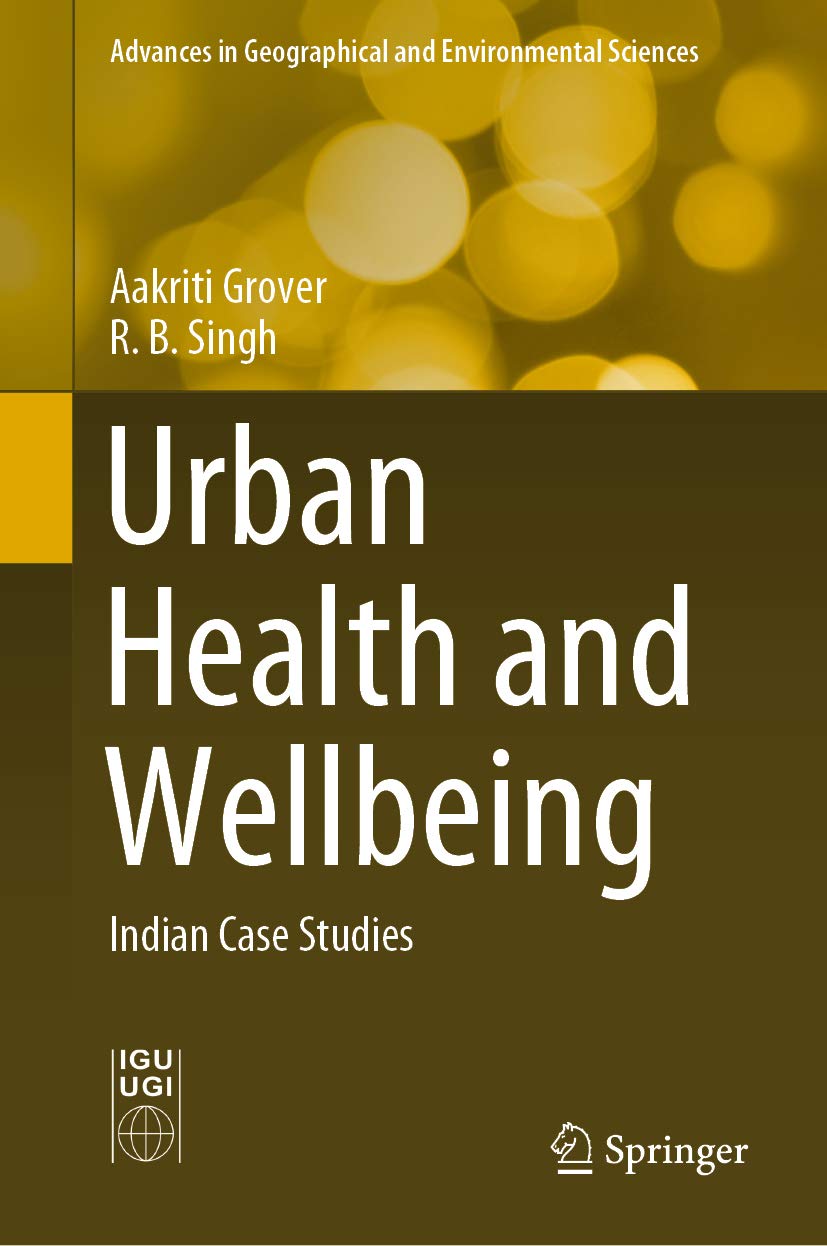Urban Health and Wellbeing: Indian Case Studies (Advances in Geographical and Environmental Sciences)
Urban Health and Wellbeing: Indian Case Studies (Advances in Geographical and Environmental Sciences) is backordered and will ship as soon as it is back in stock.
Couldn't load pickup availability
Genuine Products Guarantee
Genuine Products Guarantee
We guarantee 100% genuine products, and if proven otherwise, we will compensate you with 10 times the product's cost.
Delivery and Shipping
Delivery and Shipping
Products are generally ready for dispatch within 1 day and typically reach you in 3 to 5 days.
Book Details
-
Author: Aakriti Grover and R.B. Singh
-
Publisher: Springer
-
Language: English
-
Edition: 2022
-
ISBN: 9789811696022
-
Pages: 308
-
Cover: Hardcover
-
Dimensions: 4.3 x 3.3 x 0.8 inches
About the Book
This insightful volume examines the critical and emerging theme of human health in the context of India's rapidly evolving urban environments, specifically in the megacities of Delhi and Mumbai. Drawing on interdisciplinary approaches, the book highlights the compounded impacts of rising temperatures and escalating air pollution on urban populations, based on both primary interviews and secondary data on mortality patterns from 2001 to 2012. The study incorporates satellite-based mapping of surface temperatures using Landsat images to demonstrate the scale and severity of urban transformations.
As urban centers expand, vital ecosystem services—air, water, and land—are disrupted, giving rise to complex challenges such as urban heat islands (UHIs) and degraded air quality. These environmental changes have tangible health impacts, contributing to ailments ranging from stress and respiratory issues to chronic disease and mortality. With outdoor air pollution responsible for 1.2 million deaths in India in 2017 and an anticipated global toll of 6 to 9 million annually by 2060, the need for sustainable urban planning has never been more urgent.
The book meticulously analyzes the deteriorating environmental health scenario, particularly in Delhi, which has faced near-emergency conditions in recent years. With the UN projecting Delhi and Mumbai to become the second and third most populous cities by 2025, this book serves as a timely resource. It bridges scientific research with practical policy by aligning its discussions with key global frameworks—WHO’s Action Plan, Sustainable Development Goals (SDGs), the Sendai Framework for Disaster Risk Reduction, and Habitat III.
Students and scholars of urban studies, environmental science, geography, public health, and policy studies will find this volume especially valuable. It not only unpacks past and current trends but also lays out strategic pathways for a healthier, more sustainable urban future in India and beyond.
About the Authors
Aakriti Grover is an Assistant Professor in Geography at the Central University of Tamil Nadu. A World Social Science Fellow, her expertise lies in urban health, urban environment, and disaster management. She has contributed extensively to international research, including a UN policy brief.
R.B. Singh is a globally renowned geographer and Professor at Delhi School of Economics, University of Delhi. He has served as Secretary General of the International Geographical Union and has made pioneering contributions to land use planning, climate change, disaster management, and geospatial analysis. His leadership in both national and international scientific committees underlines his influence in shaping the discourse on urban health and sustainability.





